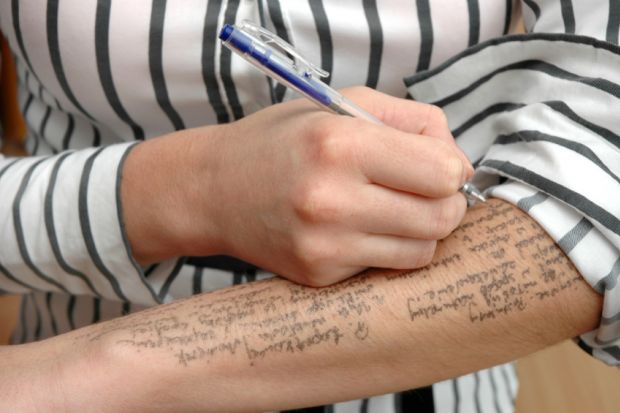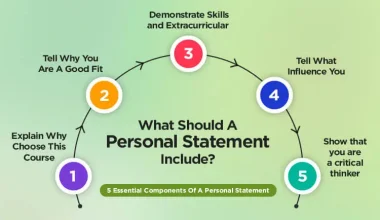Cheating in a university exam is a serious offense that can have severe consequences for students. The academic integrity policies of universities aim to maintain a fair and honest learning environment, where students are evaluated based on their own knowledge and abilities. Then, what happens if you get caught cheating in a university exam?
If you are caught cheating in a university exam, the repercussions can range from failing the assignment or course to expulsion from the university. If caught cheating in a university exam, your academic future may be at risk.
The process of being caught cheating typically involves a disciplinary hearing, where evidence is presented and a decision is made regarding the punishment.
For a deeper understanding, we will explore the process that occurs when a student is caught cheating, the consequences of cheating in a university exam, what constitutes cheating, and whether it is possible to re-sit exams after being caught cheating.
Table of contents
- What is Cheating in a University Exam ?
- The Process of Being Caught Cheating
- What Happens if You Get Caught Cheating in a University Exam ?
- Can You Get Kicked Out of University for Cheating?
- Re-sitting University Exams After Being Caught Cheating
- Tips for Academic Integrity
- FAQs on Cheating in a University Exam
- Conclusion
- References
- Recommendations
What is Cheating in a University Exam?
Cheating in a university exam is defined as gaining an unfair advantage over other students through dishonest means.
This can include copying other people’s work, using unauthorized aids, accessing unauthorized materials, or communicating with others during the exam. Each university may have its own specific policies and definitions of cheating, so it is important for students to familiarize themselves with their institution’s guidelines.
It is also worth noting that unintentional plagiarism, such as improper citation or paraphrasing, can also be considered academic misconduct.
The Process of Being Caught Cheating
If a student is suspected of cheating during an exam, there are two possible scenarios: being caught in the act or being caught after the act.
In the act, a proctor or invigilator may notice suspicious behavior, such as fidgeting with a student ID or unauthorized aids. They will discreetly approach the student and confiscate any evidence. A report will be filed detailing the incident.
After the act, if a student is suspected of plagiarism or misrepresentation, the professor may receive a similarity report indicating that the submitted work matches other sources. The student will then receive an email requesting a meeting to discuss the suspicion of academic misconduct.
The meeting, facilitated by the academic integrity office or the professor, allows the student to respond to the concerns and provide an explanation. The meeting is non-confrontational and provides an opportunity for the student to present their side of the story. The decision-maker will consider the evidence and make a ruling on whether academic misconduct has occurred.
Read: Are Universities Charities? Why Do Non-Profit Organizations Seem Like Charitable Ones?
What Happens if You Get Caught Cheating in a University Exam?
The consequences of cheating in a university exam can vary depending on the severity of the offense, the student’s history of academic misconduct, and the university’s policies.
In less severe cases, the student may receive a reduced grade on the assignment or course. They may also be required to complete educational workshops on academic integrity.
In more serious cases, the student may fail the assignment or course, face suspension, or even be expelled from the university. Expulsion can have long-term consequences, as it may be noted on the student’s academic record, and could impact future educational and career opportunities.
Can You Get Kicked Out of University for Cheating?
Getting kicked out of university for cheating is a possibility, especially in cases where a student has a history of academic misconduct or engages in repeated cheating.
Suppose a student is found to have cheated on multiple occasions or engaged in serious cheating, such as plagiarism or accessing unauthorized materials. In that case, the university may take more severe disciplinary action.
This can include temporary or permanent expulsion from the university. It is important to note that expulsion can have long-lasting consequences and may impact a student’s ability to transfer credits or pursue further education.
Also, read: Do Colleges Have Prom in the UK or Formal Dances?
Re-sitting University Exams After Being Caught Cheating
In some cases, students who have been caught cheating may be allowed to re-sit their exams.
However, this is not always guaranteed and is dependent on the policies of the university. If a student is granted the opportunity to re-sit the exam, there may be additional restrictions or penalties in place.
For example, the student may only be able to achieve a maximum grade or a percentage of the original mark. It is essential for students to understand that re-sitting an exam does not negate the consequences of cheating and that academic integrity should always be prioritized.
Tips for Academic Integrity
Maintaining academic integrity is vital for success in university and beyond. By following these guidelines, students can maintain their academic integrity and ensure a fair and honest learning environment for themselves and their peers.
Here are some tips to help students uphold academic integrity:
- Familiarize yourself with your university’s policies on academic integrity and cheating.
- Attend any workshops or seminars on academic integrity offered by your university.
- Develop good study habits and time management skills to avoid the temptation to cheat.
- Seek help and support from professors or academic advisors if you are struggling with coursework.
- Practice proper citation and referencing techniques to avoid unintentional plagiarism.
- Avoid using unauthorized aids or accessing unauthorized materials during exams.
- Communicate openly and honestly with your professors if you encounter any challenges or difficulties.
- Take responsibility for your actions and understand the potential consequences of cheating.
Read: How Long Do Graduation Ceremonies Last? | What You Need To Know
FAQs on Cheating in a University Exam
Academic dishonesty can have serious consequences, but it does not necessarily ruin your life. If you are caught cheating, you may be able to make amends and continue your education. However, academic dishonesty can damage your reputation and make it more difficult to get into graduate school or find a job.
You can fail the exam, or the course, or even be expelled from school.
If you’re caught cheating, It’s possible you’ll face disciplinary actions imposed by the university. These may include being suspended or absolute rustication from college.
Conclusion
It is important to understand what happens if you’re caught cheating in a university exam. The consequences of cheating and the definitions of cheating in a university exam have all been outlined. By prioritizing academic integrity and following the tips provided, you can avoid the pitfalls of cheating and maintain a successful academic journey. Remember, cheating is never worth the risk, and the long-term consequences can far outweigh any short-term benefits.
References
- Student.ask.adelaide.edu.au – What happens if someone is caught cheating in an exam?
- Academia.stackexchange.com – I was caught cheating on an exam, how can I minimize the damage?
- Wikihow.com – How to Deal With Being Caught Cheating on a Test



